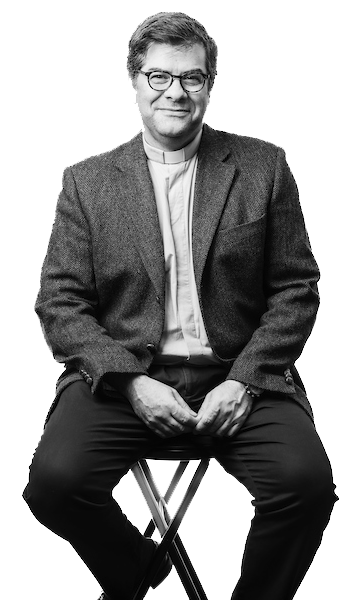
Afonso Seixas-Nunes, S.J.
Assistant Professor, School of Law
Afonso Seixas-Nunes, S.J., is a faculty member in SLU's School of Law and its renowned Center for International and Comparative Law. He is also a member of the dynamic community of Jesuits who live, study, teach and minister on SLU's campus.
In his research and teaching, Seixas-Nunes explores the rules of accountability for violations of humanitarian law in the age of artificial intelligence and autonomous weapons. His work has implications on an international level and beyond: He's developing research in the realm of outer space, a NATO-defined domain of warfare.
Describe your primary areas of research.
My research focuses on the laws of armed conflict and international humanitarian law (IHL). These are two different terms to describe the same reality of rules. Researchers who write about laws of armed conflict tend to focus on the rights of states to pursue all necessary military operations on the battlefield, while humanitarian law focuses on the protection of civilians and civilian objects in times of armed conflict. Within IHL one important topic is the legitimacy of weapons that the parties to a conflict may deploy. As we know, artificial intelligence is dramatically changing the reality of the battlefield, namely with the possibility of replacing human operators with machines/robots/weapon systems. My current research focuses on the rules of accountability for violations of humanitarian law caused by autonomous systems. I also am developing research in the field of outer space, which NATO defined in 2019 as the fifth domain of warfare.
What drew you to this field of research?
My interest began when I read a law that requires the parties to a conflict to inform the families of soldiers and civilians about the circumstances under which their loved ones died on the battlefield. We know the names of the soldiers but not always the names of the civilians. They become faceless. Nobody should be faceless, and I have dedicated my life to serving these innocent victims of war.
What has been the impact of your work?
I have been amazed by the impact of my work. In 2022, I published my doctoral thesis, The Legitimacy and Accountability of Autonomous Weapon Systems – a Humanitarian Perspective. Following this, the Dutch Ministry of Defense invited me to join an international conference of experts in autonomous weapons. In 2023, the Israel Defense Department invited me to participate in its conference regarding the laws of war. And in 2024, I was invited to speak at the International Law Association’s annual meeting in Washington, D.C.
Is there an urgency to address the questions you pose in your research?
The current conflicts across the globe demonstrate why it is so important to make people aware of the duties of states when they go to war. States feel free to act as they want because civil society does not question its own governments and foreign policies. Only when society is well informed can we change policies and suggest new ways to protect human dignity. Civilians cannot be scapegoats of the military interests of states. International human rights law puts limits on the means and methods of warfare.
As an educator, what impact do you hope to have on your students?
I hope to instill in them the love of rigor and the search for truth. I hope my love for the protection of innocent victims will be shared by my students.